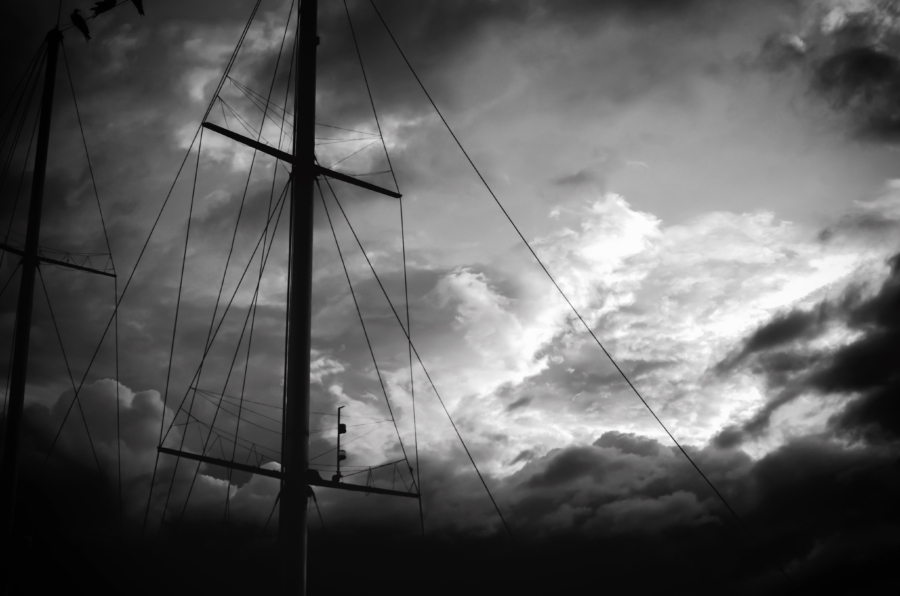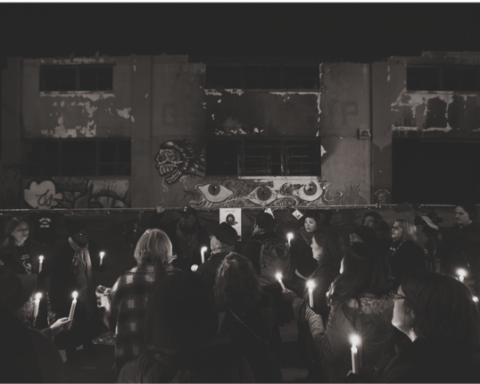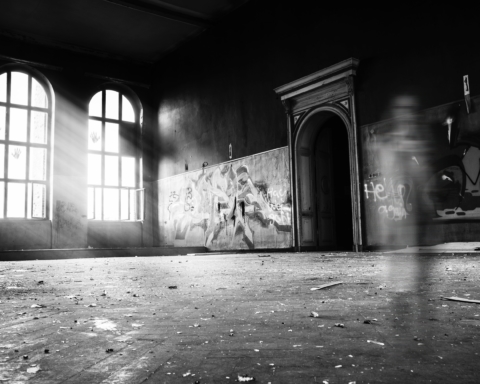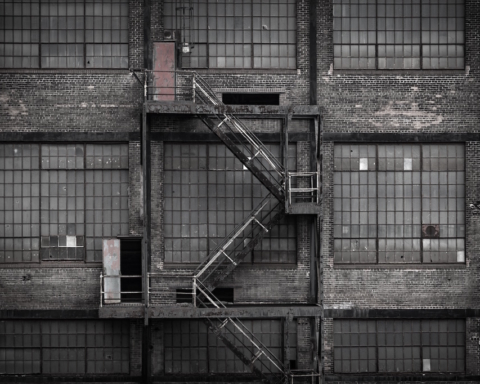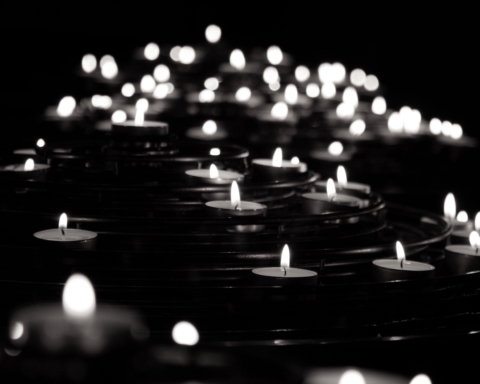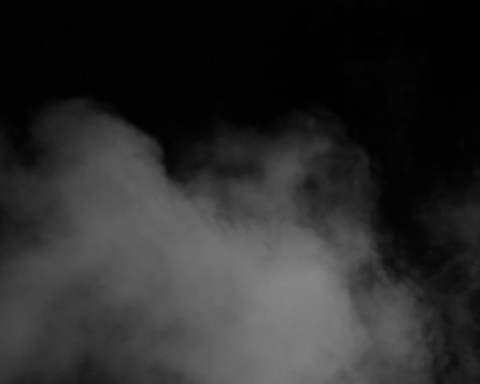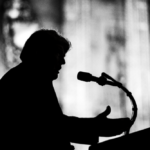Light poured through the grille from a confessional,
through interior windows, stained glass,
over pews, banquettes, overstuffed chairs,
ottomans, leatherette couch, Naugahyde recliner,
made it all glow. Tiffany lamps shone.
Strings of golden lights, votive candles,
parasols and pagodas, tassels and tapestries,
Persian rugs, batik, inlay, mosaic, macramé.
Crazy brilliant children played 52 pianos,
guitars acoustic and electric, rattles,
a Telefunken cabinet radio with shortwave
that could tune into Russia at sunset,
a drum set, bodhrans and bongos. Turntable,
vinyl records, brass bells, bamboo flutes,
giant speakers with godzilla subwoofers,
a lit-up jukebox, a washboard,
animal horns blown like shofars.
As the music got going, madonnas swayed.
Ganeshas waved arms. Silver and gold
Buddhas cavorted. Balinese and African
masks descended from walls,
circled faster around wild players.
A great papier maché head bobbed.
A manticore screamed. A bicycle spun
its wheels in air. A string of painted birds
flew in tightening elliptical orbits.
A Northwestern Native American totem
pole disassembled itself, figures
jumping down one by one to dance
around maniac musicians. Dozens
of skulls, human and animal, jigged
in concentric circles, clockwise
and widdershins. A grandfather clock
that never chimed struck at last,
and all the other clocks ran backwards.
They’ll say it was exposed electrical wires,
lianas of extension cords, a wild child
defying the No Smoking sign, igniting
propane tanks attached to the camping stove.
Witnesses know better. As the music rose,
dragons of stone and dragons of wood
shot fire from mouths, smoke from nostrils,
igniting pointed pickets from demolished fences,
paintings, engravings, stacked rolled carpets,
nineteenth-century photos, throw pillows,
and the makeshift staircase of wooden pallets.
Dream-catchers, reversed swastikas and books
burned. Wagon wheels, a round piece of wood
with a painted eye, signs reading “TATTOOS,”
“Star Wars,” “Welcome to Satya Yuga,” and “CHAI”
all made fine kindling. Canopic jars
of paints and solvents exploded. Canvasses curled.
Purple curtains smoked, sparked. Windows exploded.
Night air roared in and fed the conflagration.
The roof collapsed onto people holding each other.
Ashes were identified by dental records and DNA.
Reporters asked who was to blame.
Politicians offered thoughts and prayers
where the stench of burning lingered.
Survivors bedded down under bridges,
moved to Vallejo or back in with their parents.
Now 36 ghosts play 52 pianos on a ghost ship
floating down the estuary to the bay.
Its gunwales are strung with Christmas lights.
Tibetan prayer flags flutter from the masts,
though there is no wind. The figurehead
is a trans girl DJ bare to the waist. Silent foghorns
warn their music is leaving Oakland.
Answering music pours out every city window.
Jan Steckel is a poet and former pediatrician. Her book The Horizontal Poet (Zeitgeist Press, 2011) won a 2012 Lambda Literary Award for Bisexual Nonfiction. She has published two award-winning chapbooks: Mixing Tracks (Gertrude Press, 2009) and The Underwater Hospital (Zeitgeist Press, 2006). Her writing has appeared in Scholastic Magazine, Yale Medicine, Bellevue Literary Review, and elsewhere. She lives in Oakland, California, “where we keep our fist in the air.”

